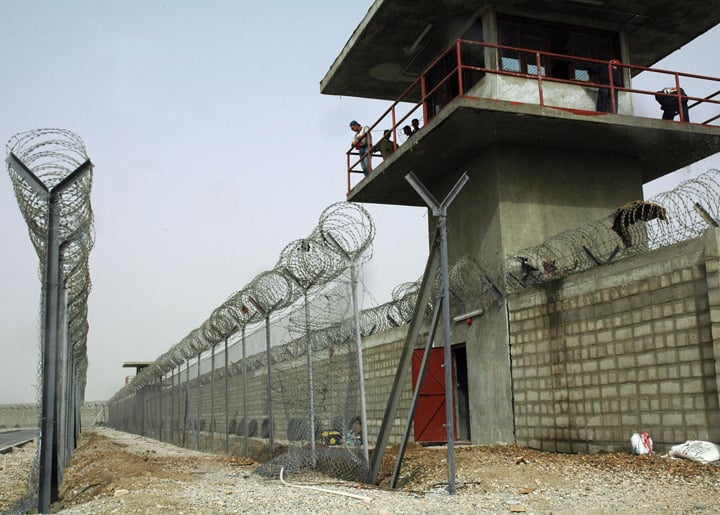Iraq’s parliamentary committee for women’s and children’s affairs has demanded the immediate release of female detainees in Iraqi and US-run prisons.
“We call upon the Iraqi government and US-led forces to release immediately all female prisoners who have not been convicted,” member of parliament Nadira Habib, deputy head of the parliamentary committee, told IRIN in an interview on 9 December.
“The Iraqi government should expedite reviewing the files of these detainees by forming committees of lawyers, judges and prosecutors, as the majority of them [female detainees] are innocents,” Nadira said.
According to her, there are 199 female detainees in the Iraqi-run al-Adala prison in Baghdad’s northern Kadhimiyah area, while it is not clear how many women are held in US-run prisons.
“No one knows how many female detainees are now in prisons which are run by US forces as they always refuse requests from our committee to visit them,” Nadira said.
She said the latest request her committee had made to the US forces was in July when it asked for permission to visit prisons at Baghdad airport and Bucca in Basra. Their request, she said, had been rejected.
“But estimates we get from lawyers who interview these detainees indicate that there are no more than 50 female detainees in these [US-run] prisons.”
Nadira said violations against these detainees, including torture and maltreatment, had generally stopped since access to Iraqi-run prisons was granted at the end of 2006. Some of the detainees were being held for criminal activities and others for having links with militants.
Prison ordeal
Nearly four months ago, an Iraqi army force raided a house in western Baghdad looking for a suspected insurgent accused of launching attacks against Iraqi security forces but they took his sister instead, according to her.
“They didn't believe us when we told them that he had no links with any militant groups and he was only abroad for business; they told us that he would surrender himself when they jailed me," said his 44-year-old sister who wants only her initials H.A to be used as she fears reprisals.
“Thank God they didn't sexually abuse me, but they beat me during my nearly one month in prison and I was subjected to loud music, and the lights were never turned off in my cell. This was done to force me not to sleep and then they let me talk to my family when I was crying," she said.
“When my brother returned they interrogated him for about two weeks and then we were told 'sorry we had wrong intelligence'."
UN report
The UN Assistance Mission to Iraq (UNAMI) has regularly reported alleged beatings, rape or sexual abuse against women in prisons.
In its report on human rights in Iraq covering April-June 2007, UNAMI said it had interviewed several women and young girls in the women’s juvenile facility and at al-Adala prison. All the interviewees said they had been beaten, raped or otherwise sexually abused while in police custody prior to being transferred to prison.
UNAMI also interviewed several of the women on death row and they all complained of the poor quality of pre-trial and trial proceedings before Iraq’s criminal courts.
sm/ar/cb
This article was produced by IRIN News while it was part of the United Nations Office for the Coordination of Humanitarian Affairs. Please send queries on copyright or liability to the UN. For more information: https://shop.un.org/rights-permissions





